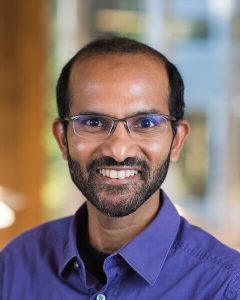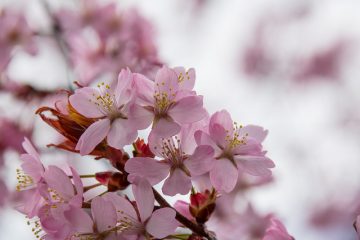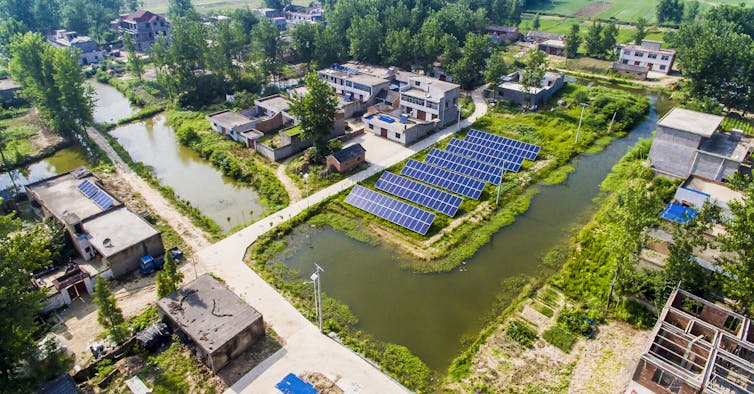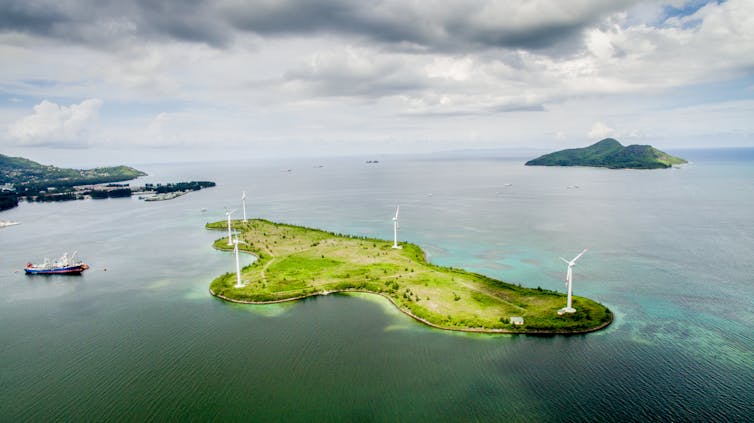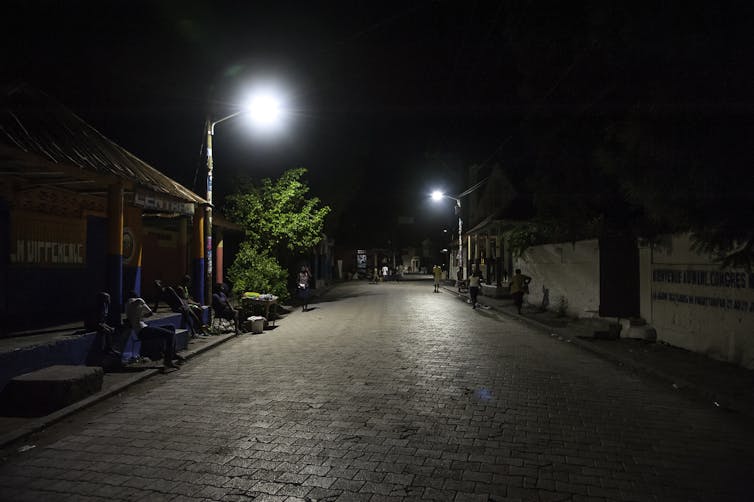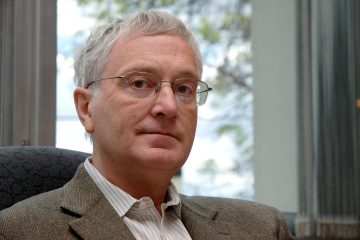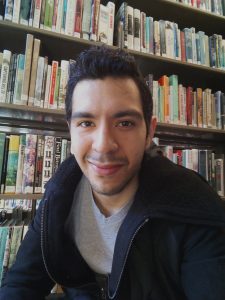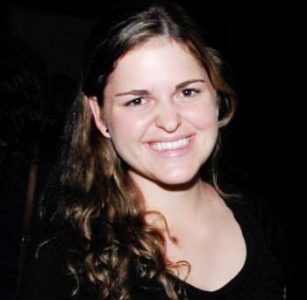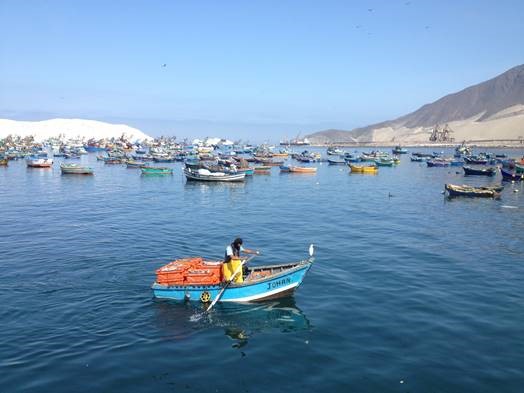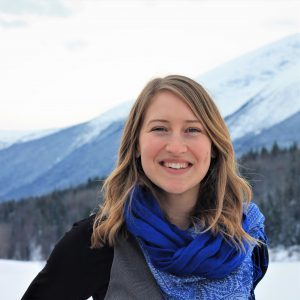The IRES Student Symposium showcases research done by our Masters and PhD students.
Date: April 11, 2019, 2:00-4:30pm
Location: Earth Sciences Building 1012
Symposium Schedule
Click here to view the video recordings Part 1 and Part 2.
20 mins per speaker (15 min talk, 5 min questions)
2pm to 2:05pm – Introduction by Leila Harris
2:05pm to 2:25pm – John Driscoll
2:25pm to 2:45pm – Naya Arriagada Oyarzún
2:45pm to 3:05pm – Victor Lam
3:05pm to 3:25pm – Break (20 mins)
3:25pm to 3:45pm – Steve Williams
3:45pm to 4:05pm – Krista Cawley
4:05pm to 4:25pm – Connor Robinson
Cash Bar and Dinner in AERL Building Lobby: 4:30pm to 8pm
Analyzing NAFO fisheries yields in terms of nutrients, rather than catch weights, leads to novel insights
CLICK HERE TO WATCH THE VIDEO (2:25-24:50 min)
Abstract: Fisheries yields are typically expressed and analyzed in terms of the weight of the catch. However, catch weight is not necessarily a good indicator of food and/or nutrient production, as different taxa can vary greatly in the amount of food that they yield for humans and in the nutrient content of that food. Given the dietary importance of seafood, particularly for food-insecure populations, it is proposed that analysis and and management of fisheries’ yields should be expanded to consider nutrients of particular dietary importance. In this study, yields from Northwest Atlantic Fisheries Organization (NAFO) fisheries were re-expressed in terms of yields of specific nutrients. Results and conclusions from this analysis will be discussed, with a particular focus on how nutrient-specific analysis can reveal trends, insights, and conclusions that are not apparent from analysis of catch weights alone.
John Driscoll (PhD Program)
supervised by Kai Chan
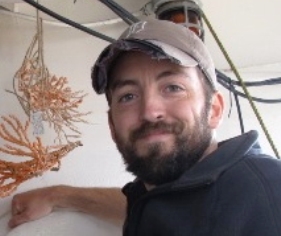
Bio:
John is a Ph.D. candidate in Kai Chan’s lab, where his research focuses on the analysis and management of fisheries for food production outcomes. He received his B.A. in biology from the College of Wooster (Ohio), and a Master’s of Environmental Studies from Dalhousie University (Halifax). Prior to arriving at UBC, he was the fisheries program manager for a Canadian environmental organization. John has conducted a number of sustainability analyses for the Seafood Watch/SeaChoice programs, and has approximately 350 days-at-sea experience in fisheries, primarily as a fisheries observer in Alaska and New England.
“We fought like never before, but we lost as usual”: Environmental governance in red tide/salmon farming crisis in Chiloé Island (Chile)
CLICK HERE TO WATCH THE VIDEO (25:25-47:00 min)
Abstract: In 2016, a social movement developed on the Island of Chiloé in protest against the consequences of the worst “red tide” algal bloom in Chile’s history, as well against the salmon farming industry. Research has shown that coastal communities are suffering a broad array of environmental changes that challenge them socially, culturally and economically. When these communities face chaotic multi-shock events such as the case of Chiloé Island, adaptive capacity is challenged. Through qualitative interviews, this research aims to describe the perceptions of Chiloé inhabitants regarding the multi-shocks of the red tide/salmon crisis, and how those processes impact their social adaptive capacity. Specifically, in terms of governance of the conflict, while a few positive outcomes are associated with the social movement’s efforts including Supreme Court decision, national and local governance strategies are rigid, short term oriented, and far from adaptive.
Naya Arriagada Oyarzún (MA Program)
supervised by David Boyd
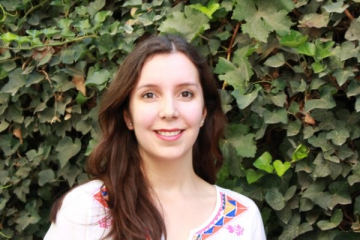
Bio:
Naya was born and raised in Chiloé Island, Southern Chile, surrounded by nature and unique rural life. She graduated from Sociology in Chile in 2013 and has professional and academic experience in social research. In Chile, she has worked as a project manager for national and international public opinion surveys, as well as research assistant and consultant for UNDP. Her previous work in academic research has focused on regional social movements and conflicts, but currently is looking to broaden her scope to environmental conflicts and governance towards sustainable solutions for the affected communities.
Naya is working under the supervision of Dr. David R. Boyd. Her research is focused on social movement’s outcomes and social resilience in coastal communities where collective action regarding marine resources is contentious. Specifically, her research explores the links between governance and policy changes, social capital and adaptive capacity in the salmon farming conflict in Chiloé.
Examining How Religious Environmental Organizations Construct and Tailor Messages on Climate Change: A Case Study of the Trans-Mountain Pipeline Expansion Resistance
CLICK HERE TO WATCH THE VIDEO (47:20-1:06 min)
Abstract: Through education, advocacy and activism, religious environmental organizations (REOs) could play a critical role in addressing disengaged religious audiences on climate change. Based on a case study of the Trans Mountain Pipeline Expansion resistance, this presentation examines how REOs construct and tailor the messages of climate change to religious audiences throughout the movement. Drawing on the framing approach, we identified major themes in 15 semi-structured interviews with key REO informants. Preliminary findings suggest that REOs drew upon and emphasized frameworks of environmental stewardship, interconnectedness, and climate justice to justify their actions in pipeline resistance. However, some REOs had to tailor their messages in light of wider, political and institutional considerations. This work contributes to the growing literature on the role of religious actors in climate change politics, and provides valuable empirical evidence of the nascent religious environmental movement in Canada.
Victor Lam (MA Program)
supervised by George Hoberg
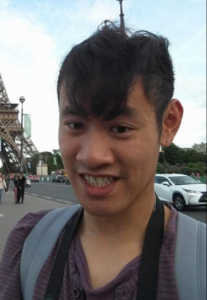
Bio:
Victor is broadly interested in the social and cultural dimensions of climate change, with a focus on the role of religious actors in climate change politics and communication. Prior to his studies at UBC, he worked as a research assistant at the Department of Geography and Asian Energy Studies Centre at Hong Kong Baptist University, where he facilitated projects on energy policy and governance in China, Hong Kong, and Japan. He has also worked with several grassroots and religious environmental organizations in Hong Kong and Canada. He completed his BASc with Honours in Sustainability, Science and Society at McGill University.
Justice in Energy Transitions
CLICK HERE TO WATCH THE VIDEO (5:07-27:23 min)
Abstract: I argue that transitions research more broadly needs to take more account of justice in its analysis. This analysis draws primarily from environmental and energy justice literature to engage with the concept of justice in transitions research, as it seeks justice for people, communities, and the non-human environment from negative environmental impacts. This is achieved through different forms of justice: distributive, procedural, and recognition. I ground the theoretical proposal in the case of the Alberta Energy Futures Lab, a public engagement process designed to accelerate the transition to a sustainable energy future, to provide an empirical example of the application of environmental justice and sustainability transitions. I conclude with reflections upon the application of a justice approach to sustainability transitions research and offer insights into a potentially new research agenda.
Steve Williams (PhD Program)
supervised by John Robinson and Terre Satterfield
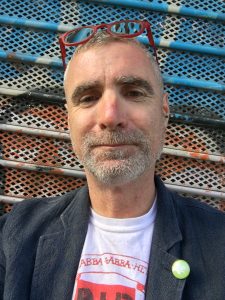
Bio:
Steve has extensive professional experience in evaluation, impact measurement, and data visualization for sustainability and social change projects. He combines his experience with information design to design and facilitate public events and collaborative professional development trainings, using data to engage the public and stakeholders in sustainability dialogue, and integrating art and theatre into public engagement. Steve is currently a PhD candidate at UBC evaluating the societal impacts of sustainability transition experiments with the Energy Futures Lab in Alberta, Canada as case study. In 2018, Steve was a Fellow at the Institute for Advanced Sustainability Studies in Potsdam, Germany and continues as an Affiliate Scholar with IASS.
What do plants and waves have in common? An evaluation of the flood protection potential of a coastal brackish marsh near Richmond, BC, Canada
CLICK HERE TO WATCH THE VIDEO (28:00-47:18 min)
Abstract: Coastal communities are at an elevated risk of coastal flooding from the combined impacts of future sea level rise, storm surge, and winter storms. While communities situated in these low-lying areas are planning for future flood risk, often nature-based solutions are vaguely described due to the complexity of their flood protection services. Vegetation in tidal marsh ecosystems can act as a buffer to flooding by reducing wave height and dissipating wave energy. However, most research on tidal marshes focuses on salt marshes and mangroves, and little is known about the variability of flood protection across seasons. Using field measurements and numerical modelling, this research aims to evaluate the potential flood protection of the Sturgeon Bank brackish marsh near the City of Richmond, to provide evidence informing nature-based solutions which may assist in planning for flood risk reduction in the future.
Krista Cawley (MSc Program)
supervised by Stephanie Chang
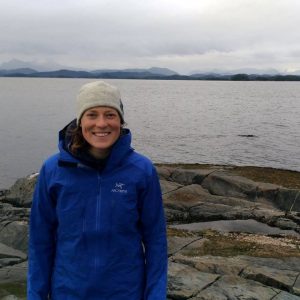 Bio:
Bio:
Krista is an MSc student working under the supervision of Dr. Stephanie Chang. She is interested in how vegetation in coastal tidal marsh ecosystems can act as flood protection during winter storm events. Previously, she completed a BSc in Environmental Science with a concentration in Ecology and Conservation at UBC. Born and raised in Powell River, she has developed a keen interest in marine and coastal systems and has worked in outdoor leadership and youth education for 10 years.
Modeling and Comparing the Effects of Agricultural Land Application of Biosolids and Biochar on Soil Health
CLICK HERE TO WATCH THE VIDEO (47:40-1:10:04 min)
Abstract: The Capital Regional District (CRD) is currently determining what the preferred beneficial reuse option is going to be for its soon-to-be-produced Class A biosolids (highly treated sewage sludge). This could mean directly using the biosolids in agriculture or turning them into biochar before use in agriculture. Each of these options comes with its own set of pros and cons to soil and environmental health, and social and economic implications. In this thesis, system dynamics modelling is used to compare the pros and cons, in terms of effects on soil health, of agricultural land application of biosolids and biosolids-derived biochar in the CRD. This is done by looking at how the stocks of fixed and plant-available nitrogen, permanent and labile carbon, and two endocrine-disrupting compounds change over time as a result of land application of either of these soil amendments.
Connor Robinson (MSc Program)
supervised by Gunilla Öberg and Steve Conrad
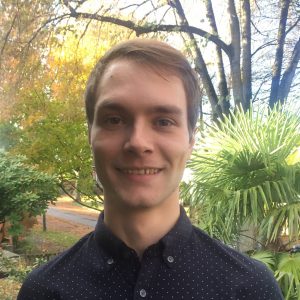
Bio:
Connor is a second-year MSc student at the Institute for Resources, Environment and Sustainability under the supervision of Dr. Gunilla Öberg. He grew up in Vancouver, a place that he once thought of as having a steady, secure water supply given the amount of rain we receive and the highly-engineered nature of the urban water system. This notion was quickly flipped on its head, however, as he learned more about how environmental systems work and at the same time the effects of climate change started to be locally seen.
Connor received his Bachelor of Environment with a major in Global Environmental Systems from Simon Fraser University. During his undergraduate studies, he acquired a keen interest in water resources management, particularly in working towards environmentally, socially and economically sustainable management of this important resource for its many purposes. As an undergraduate, he served as a research assistant, assessing the regulatory environment surrounding distributed energy resources at water and wastewater utilities, under the supervision of Dr. Steve Conrad. His MSc thesis is focusing on analyzing and mapping the nature and extent of scientific and technical production in the wastewater treatment field, and creating an interactive tool that experts and policymakers can access to easily learn more about the field or aspects of it.

Photo Credit: from openclipart.org

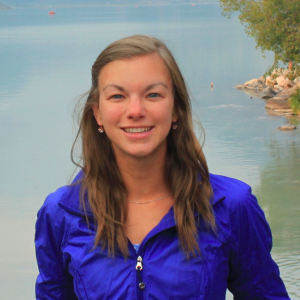
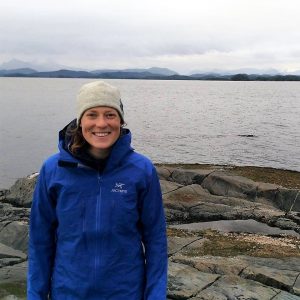 Description:
Description:




 Bio:
Bio:


